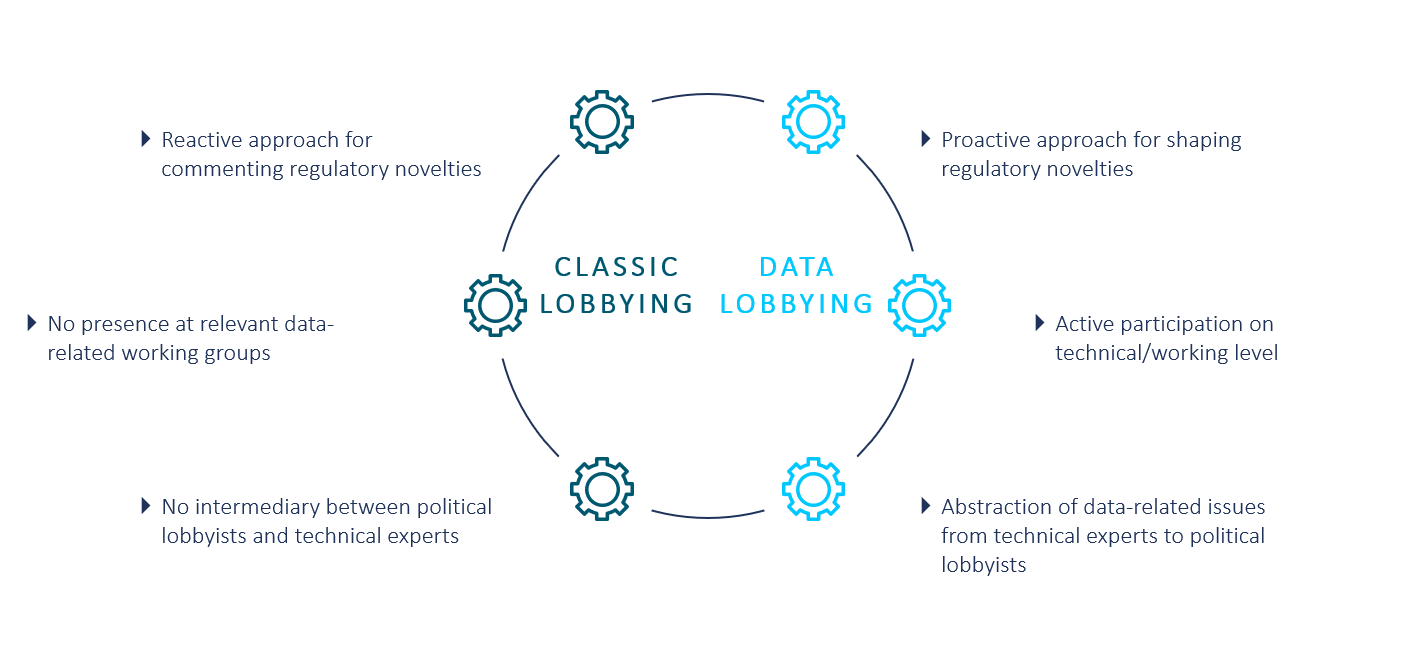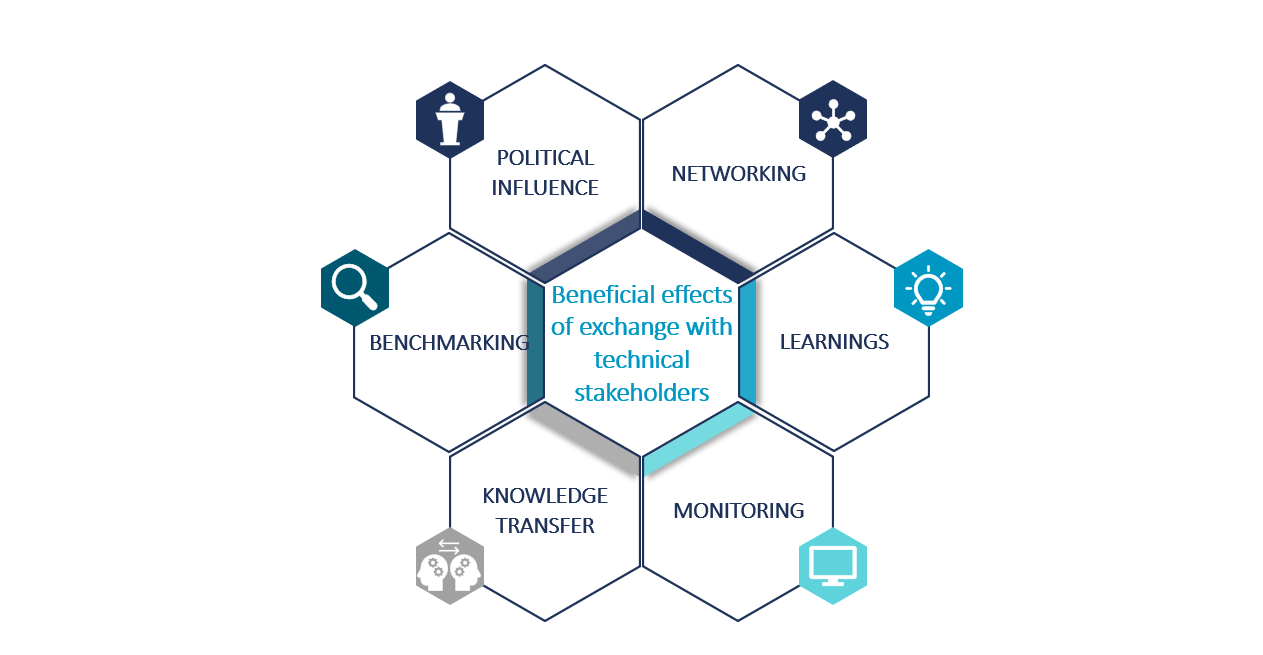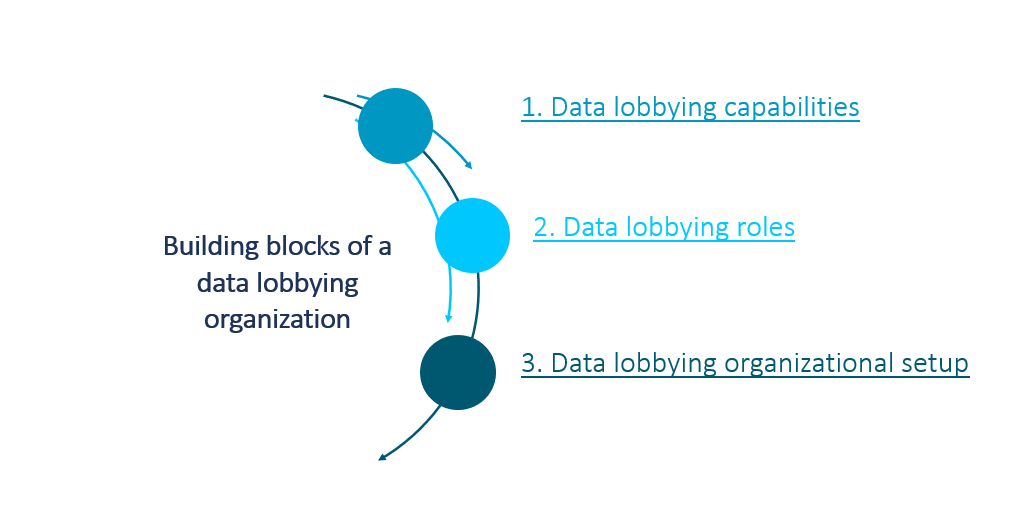When it comes to data lobbying, European companies are clearly underrepresented, even though legislative initiatives from Brussels or on a national scale can impact their business models. This article shares an overview and gives recommendations.
For data-related topics, European companies are underrepresented in the lobbying arenas in Brussels and Berlin (or other national contexts). This weighs even more as the European Data Strategy brings numerous data-related regulations. As an example, announcements by the EU on the issue of fairness of data access have an impact on data-driven business models of tech companies. Therefore, European companies affected by the upcoming regulations need to build up dedicated data lobbying organizations to not lose connection to the US competition that already lobbies the European arena in their favor. Dedicated data lobbyists will need to focus more on participation in technical working groups as an outlet to actively shape regulations. In this article, we give a detailed insight into CAMELOT’s approach to data lobbying organization design for players involved in Data Economy to proactively shape Europe’s digital future.
Why Companies Need Dedicated Data Lobbying Now
The European Data Strategy is rapidly changing the regulatory landscape for tech firms. More than 15 high-impact data-related regulations are relevant for 2022 and beyond in Germany and the EU (e.g., Data Governance Act, Digital Services Act Package). However, there is a threat by big US tech firms dominating data lobbying activities in Brussels setting the course for digitalization in their favor. That is why European companies need to take action now. Especially, large German companies have a political and social responsibility to fill this vacuum on EU level. By taking up data-related topics, these companies can demonstrate their pioneering role and further strengthen their growth profile in Europe.
In general, lobbying is the organized influencing of political decision-making, but it is still suffering from numerous challenges e.g., siloed positions and unclear staffing needs. Data lobbying includes the entire chain of data processing and value creation from data generation, data management and data marketing to data usage. Therefore, political influence is only possible if there is an overall concept and a narrative. Companies need tailored messages for political influence of specific data regulatory initiatives. Overall, taking both into account, lessons learned from previous lobbying activities and fundamental change in the regulatory landscape, an important new approach for data-related lobbying activities opens up (see figure 1).
What Is Data Lobbying and How Does It Differ from Classic Lobbying?
 Figure 1: Classic lobbying vs. data lobbying
Figure 1: Classic lobbying vs. data lobbying
Data lobbying strives to lift classical lobbying activities from a reactive commenting on already written regulations to a proactive shaping of these regulations.
In figure 1 characteristics of classic lobbying can be seen on the left side. Classic lobbying activities follow a reactive approach, which means that regulatory novelties are being commented once they appear on the political agenda, which is also due to the fact that companies are almost not present in the relevant working groups on a technical level (e.g., data-related associations). In the working groups of data-related associations, experts and company representatives, for example, actively prepare policy position papers that are heard at national and EU level and are incorporated into forthcoming regulations.
Even companies with existing lobbying activities suffer from a lack of intermediaries who can translate data-related issues between the technical experts from the functional departments and the political lobbyists from Public Affairs. As a result, companies and their political lobbyists cannot actively bring their political demands and interests into the data-related associations and the whole political decision-making process and is likely to suffer from data regulatory requirements that play into the hands of their competition.
In contrast, data lobbying on the right side in figure 1 aims to be proactive by participating on technical level. With the active participation in working groups of the most influential technical associations (e.g., Bitkom, BVDW and BDI), members of the data lobbying organization boost their influence on political decision-making.
This is also due to the fact that regulatory and legislative bodies are constantly working on maintaining social consensus and association positions provide safety. For example, if a company’s individual position paper mostly coincides with an association position paper, the strengthening effect on political decision-making becomes clear. Furthermore, this proactive approach enables a strong position for reactive commenting of regulatory novelties, making it all the more important for companies to participate in technical associations actively shaping associations’ positions. The active participation in data-related associations, but also EU working groups, standardization organizations and Think Tanks comes with further advantages and options listed below:
- Political influence
Agreement between company and association positions strengthens the effect on political decision-making - Networking
Direct access to important government agencies, institutions, authorities, industry peers and the scientific community. - Learnings
Exchange of experiences at both technical and legal level between participants provides competitive advantages for companies. - Monitoring
Early detection of regulatory developments through existing network and systematic review enables proactive counteraction. - Knowledge transfer
Sharing of knowledge and practical know-how expand the basis for cooperation between (specialized) providers. - Benchmarking
Market transparency of providers and their solutions, users, research institutions to identify improvement areas.
 Figure 2: Beneficial effects of exchange with technical stakeholders
Figure 2: Beneficial effects of exchange with technical stakeholders
Building a dedicated data lobbying organization closes the gap between the technical and political sphere by creating intermediaries for abstracting data-related issues and delivering company positions.
Building Blocks for Data Lobbying
From our experience of past projects, three building blocks are essential to build up a data lobbying organization:
-
Data lobbying capabilities
Define the needed activities and capabilities of the future (data-related) lobbying organization as well as participation in relevant associations.
-
Data lobbying roles
Cluster the activities and bundle them in roles of the future (data-related) lobbying organization.
-
Data lobbying organizational setup
Discuss and determine organizational structure of the future (data-related) lobbying organization.
 Figure 3: Steps for building a data lobbying organization
Figure 3: Steps for building a data lobbying organization
The success for building a data lobbying organization depends on the following key factors, which must be taken into account when performing these three steps:
- Develop consistent positions of the company on data regulatory issues following a one-voice policy and visibly place them at relevant political and technical stakeholders.
- Attract management attention to obtain the necessary resources and budget to lobby on data regulatory issues.
- Based on the predefined activities of the data lobbying organization, match roles with experienced lobbyists with data affinity and existing networks.
CAMELOT‘s approach to an organization design for data lobbying defines the data lobbying activities, roles and organizational setup to enter the new world of lobbying and successfully lobby data-related positions on EU level. Our approach can be easily customized to specific customer needs, existing organizational structures, and maturity levels regarding data-related topics. Moreover, based on lessons learned, precious projects and customer examples building a data lobbying organization can be accelerated.

